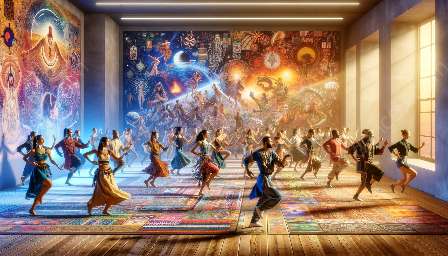Dance, a universal language, can be a powerful tool for expressing social and ethical values. This article explores the ethical and social responsibilities of contemporary dancers in light of the history and essence of contemporary dance.
History of Contemporary Dance
The roots of contemporary dance can be traced back to the early 20th century as a rebellion against the strict forms of classical ballet. Pioneers like Isadora Duncan and Martha Graham introduced a more expressive and emotionally charged style of dance that focused on individual creativity and authenticity. The contemporary dance genre evolved as a response to cultural and social changes, embracing diversity, experimentation, and pushing the boundaries of traditional dance forms.
Ethical Responsibility
Contemporary dancers have a responsibility to embody ethical principles in their artistry. This includes respecting the cultural origins and influences of the dance, acknowledging and honoring the stories and experiences depicted in the choreography, and being mindful of the impact their performances may have on the audience and the community. They should prioritize inclusivity and diversity, ensuring that their work reflects the richness of human experience and promotes cultural understanding and empathy.
Respecting Cultural Origins
Contemporary dancers must be conscious of the cultural origins and influences of the dance styles they adopt. By acknowledging and respecting the traditions and histories from which their movements derive, dancers can ensure that their performances are authentic and respectful representations of the cultures they draw from. This may involve collaborating with practitioners of the dance's original culture, engaging in cultural exchange programs, or seeking guidance from cultural experts to ensure their interpretations are accurate and respectful.
Embracing Diversity and Inclusivity
Another aspect of ethical responsibility for contemporary dancers is the promotion of diversity and inclusivity within their artistic practices. Embracing diverse choreographic voices, casting dancers from various backgrounds, and incorporating a wide range of styles and influences can enrich the art form and contribute to a more inclusive representation of humanity. By prioritizing diversity, contemporary dancers can send a powerful message of acceptance, unity, and understanding.
Social Responsibility
Contemporary dancers also bear a social responsibility to use their platform for positive change, raising awareness of social issues, and advocating for justice and equality through their artistic expression. They should strive to engage with their community, address relevant societal concerns, and promote empathy and understanding through their performances and outreach activities.
Community Engagement and Advocacy
Contemporary dancers can fulfill their social responsibility by actively engaging with their communities and leveraging their visibility to advocate for social causes. This may involve participating in outreach programs, using their art to amplify marginalized voices, collaborating with nonprofit organizations, or participating in social justice movements. By actively contributing to social change, contemporary dancers can transform their platforms into vehicles for progress and empowerment.
Raising Awareness through Performance
Performances can serve as powerful platforms for raising awareness of social issues and sparking dialogue within the community. Through provocative, thought-provoking choreography, contemporary dancers can shed light on pressing social concerns, challenge conventional viewpoints, and inspire empathy and understanding. By using their performances to communicate important messages, contemporary dancers can become catalysts for social change and advocates for a more equitable and just society.




























